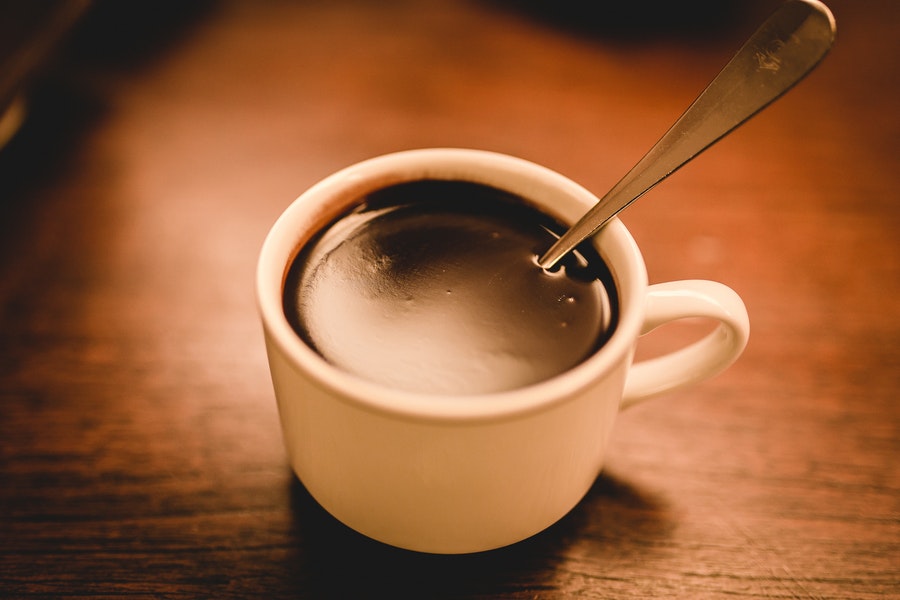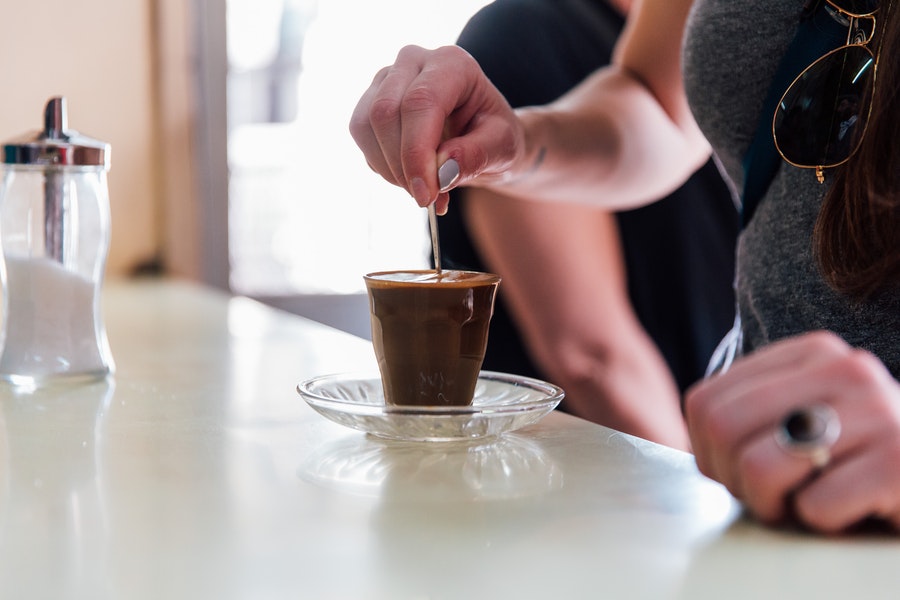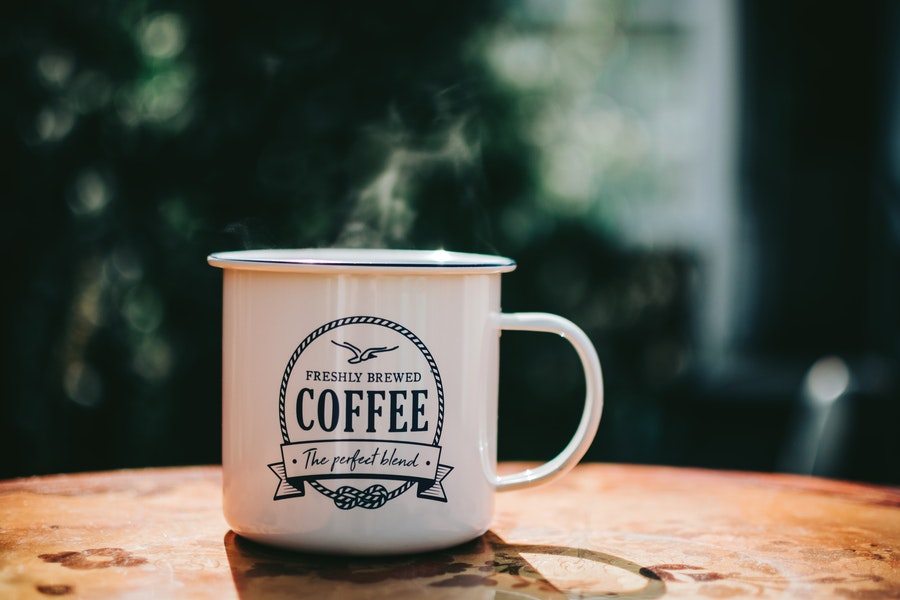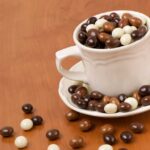You might be wondering, “Why does coffee taste like chocolate?” You’re not alone. It’s a common phenomenon that coffee can have a similar taste to chocolate. You may have noticed it if you’ve ever had a cup of hot chocolate from Starbucks or enjoyed a cappuccino at the local coffee shop. Why is this the case?
Contents
Why Does Coffee Taste Like Chocolate?
Coffee tastes like chocolate because of the length of the caramelization phase in the roasting process. A medium-dark roast is ideal for giving your beverage a robust chocolaty flavor. Light roasts taste less like chocolate because they have not been heated enough to produce caramelized sugars. Also, when heated for too long, the chocolate flavors in coffee beans “burn off” and disappear completely.

Coffee and chocolate both contain polyphenols. You simply can’t make a good cup of coffee without them! Polyphenols are heat-sensitive, which explains why the degree to which you roast your beans affects how much your coffee will taste similar to chocolate. However, the similarity of chemicals (and hence flavor) between coffee and chocolate goes deeper.
Both Have Methylxanthines
Methylxanthines are chemical compounds that give chocolate, coffee, tea, and other foods distinctive bitter flavors. The alkaloids are also found in many other foods like mate (a South American tea) and guarana berries.
In addition to giving food its unique flavor profile, methylxanthines produce a pleasurable feeling when consumed by humans. These compounds are why you get a rush of happiness from eating chocolate or drinking coffee!
Methylxanthines are found in many other foods, and in chocolate and coffee, there are high concentrations. These flavor compounds could explain the slight similarity in taste between coffee and chocolate.
Coffee Chemistry Aroma and Flavor
Coffee’s aroma and flavor are the results of some chemicals. The primary chemical responsible for giving coffee its bitter taste is methylxanthines. In addition to caffeine, other chemicals give coffee its unique flavors:
- 2-furfurylthiol, which smells like cooked apples
- 2-isobutyl-3-methoxypyrazine, which gives an earthy taste
- 2,3-butanedione, which gives it a buttery taste
- Polyphenols give it a bitter fruity taste
Cocoa Chemistry Aroma and Flavor
The beans of the cacao fruit contain a range of chemical compounds that are just as complex as coffee’s. These chemicals give the bean its distinctive taste and smell, which can be broken down into several components.
- Polyphenols create fruity flavors when roasted at high temperatures
- 5-Methyl-2-phenyl-2-hexenal results in nutty flavors as it breaks down during roasting
- Ethyl 3-methylbutanoate has a fruity aroma that emerges during roasting and also after grinding

Brewing Method
From the above, I can tell that coffee and cocoa beans contain various volatile organic compounds that contribute to their aroma and flavor. Your brewing method can also impact how much of these chemicals you get in your beverage because most of them are affected by heat.
Some flavor compounds linger through the brewing process. Many others “burn” or simply evaporate into the air above your cup as gas molecules which is why freshly brewed coffee smells so good.
What Is the Difference between Coffee and Chocolate?
Coffee comes from seeds in cherries on trees belonging to the genus Coffea. These trees grow best under tropical conditions as well as in some other warm climates around the world (including South America). They are also native to Ethiopia in Africa. Chocolate comes from cacao beans; seeds grow inside pods on tree plants called cacao trees, found mainly in Central America and West Africa.
Coffee makes you feel alert and awake, while chocolate makes you feel calm. Coffee makes you feel jittery, while chocolate makes you feel happy. Coffee makes you feel energized, while chocolate makes you feel relaxed.
Coffee increases adrenaline which affects heart rate and blood pressure, while chocolate increases dopamine production in the brain (dopamine is a neurotransmitter associated with feelings of pleasure).
Related Questions
Does Coffee Have Chocolate in It?
No, the coffee does not have any chocolate in it. However, if you order a Caffe Mocha or a mochaccino from your local Starbucks, you will get what is essentially a latte with chocolate syrup in it. Caffe’ Mocha is a combination of coffee and chocolate. It’s a popular drink in the United States, the UK, and Australia.
Is this true for all cafes? No! Some cafes use cocoa powder to make their coffees taste similar to chocolate instead of syrup or whipped cream.

Does South American Coffee Taste More like Chocolate?
South American coffee may taste more like chocolate than East African coffee because of caffeine composition. South America produces a nuttier, heavier, and thicker caffeine-rich coffee and more acidic coffees. On the other hand, East African coffee has a sweeter, citrusy taste. However, the similarities between your coffee and chocolate flavors will largely depend on how long you roast the beans.
Conclusion
The answer to “why does coffee taste like chocolate” boils down to chemistry. Cocoa beans and coffee beans both contain caffeine, polyphenols, and other similar flavor compounds. They are also rich in flavonoids and have a similar bitterness to them. Also, both are known for their sentimentality and mood-boosting effects.


